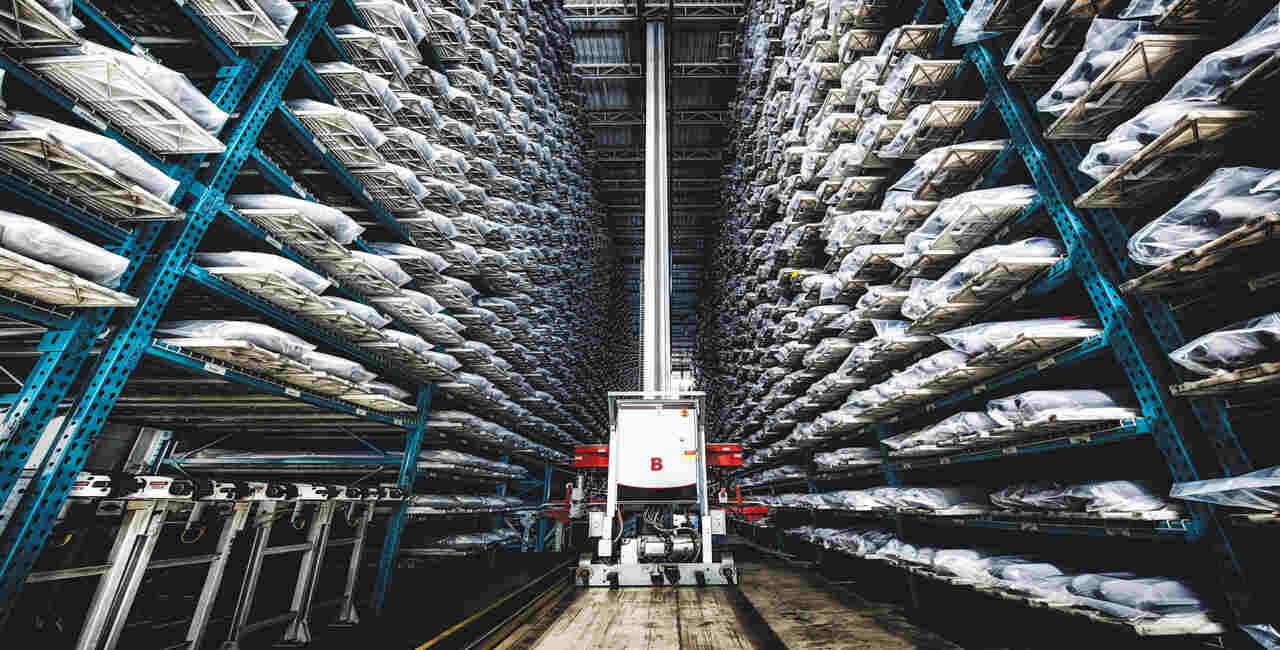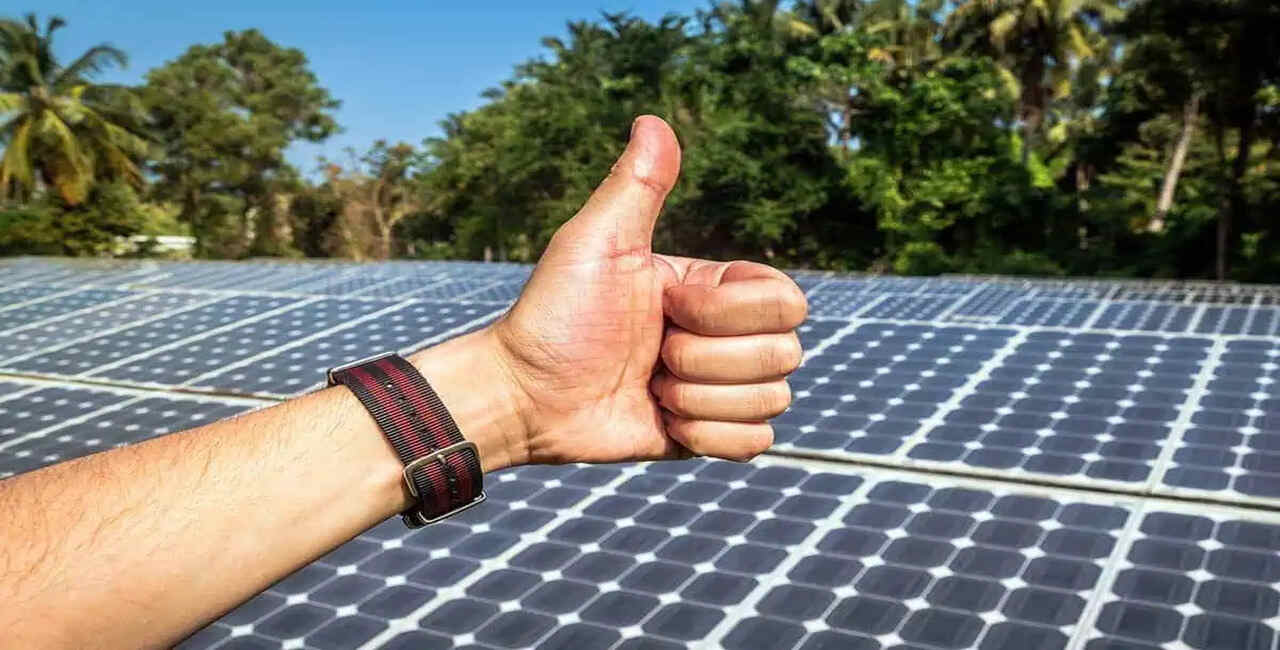Managing Solar Project Delays: Strategies for Timely Installations

The development of solar energy projects has assumed a central role in an age where sustainability and renewable energy are at the forefront of global concerns. Our current energy structure might be completely transformed if we could produce clean, renewable electricity by harnessing the power of the sun.
However, despite the promise of a cleaner future, project delays are a severe obstacle that solar project developers frequently face. These delays may be caused by a variety of things, from unexpected environmental barriers to supply chain interruptions and problems with permits.
We will examine the various factors that contribute to solar project delays in this article, and we'll offer workable solutions to make sure your solar endeavors are carried out on schedule. This article will provide you with the information and instruments required to negotiate the complex world of solar energy project management, ultimately advancing the adoption of clean, sustainable energy sources.
It doesn't matter if you are an experienced solar developer looking to improve your project management skills or a newcomer to the renewable energy industry.
Overcoming Solar Installation Delays
The use of solar energy can help fight climate change and lessen our reliance on fossil fuels. It is a viable and sustainable option. Solar installations may, however, have delays that prevent their early completion, just like any other project.
For both households and companies, these delays may be expensive and annoying. Understanding the typical reasons for delays and taking steps to reduce them is crucial for the success of solar projects. We'll go through ways to avoid solar installation delays and keep your project on schedule in this section.
Common Causes of Solar Installation Delays
- Issues with permitting and regulation: Obtaining the required permissions and adhering to the relevant municipal regulations might take some time. Project timeframes might be greatly impacted by delays in this phase.
- Weather: Unpredictable weather patterns may interfere with installation plans. Planning for unforeseen events like rain, snow, or excessive heat is crucial since they might impede work.
- Supply chain issues: Equipment and solar panel shortages, particularly in times of national emergency like the COVID-19 epidemic, might cause delays in procurement.
- Interconnection issues: Coordinating with utility providers, who occasionally encounter delays in handling interconnection requests, is necessary to connect your solar system to the grid.
- Design modifications: Problems may arise if the solar system's design is altered. These modifications might be the result of structural problems, site circumstances, or new energy standards.
Strategies to Mitigate and Prevent Common Delays in Solar Projects
- Complete project planning: Create a thorough strategy for your solar project that includes a reasonable schedule. Think about any delays with equipment procurement, weather, and permits.
- Experienced project management: Hiring a project manager with knowledge of the solar installation process can help the project go more smoothly and solve issues as they come up.
- Effective communication: Keep lines of communication open and transparent with all parties involved, including regulators, suppliers, and contractors. Make sure that everyone is aware of the project milestones.
- Early permitting: To account for any delays in gaining permissions, start the permitting procedure as soon as you can. Cooperate closely with local government to hasten the permission procedure.
- Supply chain management: Establish ties with dependable suppliers and keep an eye on the availability of solar equipment and panels. To lower the risk of procurement delays, think about diversifying your suppliers.
- Pre-approved designs: To avoid design changes, think about utilizing pre-approved solar system designs that are appropriate for your area and adhere to local laws.
- Grid interconnection coordination: To prevent delays in connecting your system to the grid, begin the grid interconnection procedure early and keep in touch with utility providers regularly.
- Experienced contractors: Pick solar installation specialists with a reputation for finishing jobs on schedule and budget. To confirm the validity of references and reviews, check the sources.
- Regular progress monitoring: Implement a reliable monitoring system to keep tabs on project progress regularly. Early detection of possible problems is important, as is fast remedial action.
Delays in solar installation might seem annoying and expensive, but with good planning and proactive measures, these difficulties can be reduced or even avoided. Your solar project will be successful and on schedule, if it is planned well, communicated effectively, and has backup plans for typical delays. By putting these tactics into practice, you may effectively harness solar energy while lowering the environmental impact of conventional energy sources.
Efficient Project Planning and Scheduling
Successful project management depends on efficient project planning and scheduling. They act as the project's overall blueprint, assisting teams with resource allocation, meeting deadlines, and accomplishing project objectives. Project schedule optimization is a crucial step in this process to guarantee timely completion. This section will examine the value of project schedule optimization and examine methods for effective project management.
Optimizing Project Schedules to Ensure Timely Completion
To optimize project schedules and ensure timely completion, project managers and teams can implement the following strategies:
- Complete project planning: Lay down all the tasks, deadlines, and resources needed in a complete project plan before you start. Recognize any environmental variables and local regulatory structures that may impact the project's schedule.
- Resource allocation: Distribute labor, supplies, and equipment effectively. Monitoring and resource allocation optimization are crucial since delays may result from resource shortages or bottlenecks.
- Risk assessment: Conduct a risk assessment to find possible hazards and create countermeasures. Unexpected problems, such as weather-related incidents, supply-chain bottlenecks, or technological difficulties, frequently cause delays. Their negative effects on the schedule can be reduced by proactive risk management.
- Using advanced scheduling tools: Use cutting-edge project management tools and software to produce realistic timetables. These technologies can aid in spotting patterns, streamlining work sequences, and simulating various scenarios.
- Continuous monitoring and reporting: Implement a reliable monitoring and reporting system to keep tabs on the status of the project continuously. Inform stakeholders of milestones attained and any schedule modifications regularly. This openness promotes confidence and enables prompt problem-solving.
- Flexibility and contingency planning: Accept the possibility that project adjustments may occur. Keep the timetable somewhat flexible and have backup plans ready to deal with unanticipated situations without major delays.
- Collaborative teamwork: Encourage cooperation amongst project teams, vendors, and contractors. Delays brought on by miscommunication or conflicting objectives can be avoided with effective communication and collaboration.
- Quality control: Ensure that the project schedule incorporates quality control procedures. In the long term, rushing through activities to meet deadlines might result in rework and more delays.
- Post-project evaluation: After the project is over, carry out a thorough analysis to determine what has to be improved in subsequent projects. Making better scheduling decisions in the future can be facilitated by learning from past mistakes.
Solar project success depends on effective project scheduling and planning. Organizations may increase their return on investment, aid in the production of sustainable energy, and improve their standing in the renewable energy industry by optimizing schedules and assuring timely completion. These initiatives are essential to advancing the shift to a greener future in a world that is increasingly centered on renewable energy.
Addressing Supply Chain Challenges
Due to the rising need for green and sustainable energy sources, the solar energy sector has experienced impressive growth in recent years. However, this quick development has also revealed supply chain flaws that might jeopardize solar installations. For the solar energy business to remain stable and flourish, it is essential to address these supply chain issues.

Supply Chain Challenges in Solar Installations:
| Supply Chain Challenge | Description |
|---|---|
| Material Shortages | Fluctuations in the availability of raw materials (e.g., silicon, silver, aluminum) can disrupt production. |
| Global Logistics | Geopolitical tensions, natural disasters, or shipping issues can impact the transportation of solar components. |
| Quality Control | Inconsistent quality control processes across suppliers can lead to equipment failures and warranty claims. |
| Workforce Challenges | Skilled labor shortages can delay project timelines and increase labor costs, affecting supply chains. |
| Regulatory Changes | Changes in government policies, tariffs, and trade regulations can impact the import and export of solar components. |
Navigating Supply Chain Disruptions in Solar Installations
Solar installation supply chain interruptions must be managed if renewable energy projects are to be resilient and successful. Solar sector stakeholders should take a diversified strategy to reduce the effects of disruptions.
First and foremost, diversifying providers is crucial. It might be dangerous to rely solely on one supplier for vital components. Creating connections with several suppliers can help spread the risk and offer backup options during shortages.
Visibility of the supply chain is also essential. Early detection of possible interruptions may be aided by using sophisticated supply chain management systems that provide real-time tracking and monitoring of inventories and logistics. This makes it possible to make preventive decisions and cuts down on downtime.
Critical to mitigating interruptions is strategic inventory management. Maintaining enough stock levels of essential parts can serve as a safety net amid supply chain disruptions, keeping projects on schedule.
Key measures also include working together with suppliers to prepare, assess and mitigate risks, and staying up to date on regulatory changes. Solar installation businesses may better handle supply chain interruptions by adopting these strategies, preserving project timeframes, and promoting the development of sustainable energy alternatives.
To ensure the sustained expansion and sustainability of this crucial sector, supply chain issues in the solar energy sector must be addressed. Solar installation firms may handle disruptions more efficiently and contribute to a greener and more resilient energy future by putting proactive methods like supplier diversity, supply chain visibility, and smart inventory management into place.
Weather-Related Delays
Solar energy projects are now a crucial component of efforts made worldwide to switch to clean and renewable energy sources. However, delays caused by the weather are a key issue that solar project developers frequently encounter.
The construction and operating schedules might be affected by unfavorable weather circumstances such as heavy rain, snow, chilly temperatures, and storms, which can result in cost overruns and project delays. It is essential to efficiently handle weather-related setbacks and lessen their impact to ensure the smooth implementation of solar projects.
Managing Weather-Related Setbacks
- Robust planning and risk assessment:
Before starting any solar project, it is crucial to carry out a thorough risk assessment that looks at past weather information for the project location. Project planners can use this information to predict probable weather-related difficulties and create backup plans if necessary.
2. Flexible construction scheduling:
Solar project designers should provide flexible construction timetables. This entails accounting for extra time for any delays brought on by the weather. The project timetable can be extended using buffer periods to assist in absorbing delays without suffering significant setbacks.
3. Weather monitoring and forecasting:
Throughout the project's lifespan, it is essential to continuously monitor the weather. Project managers may now receive real-time information thanks to advancements in weather forecasting technologies, facilitating proactive decision-making. If bad weather is expected, construction work might be postponed or temporarily stopped.
4. Quality equipment and materials:
Solar panels, racking systems, and other materials of excellent quality can assist in lessening the effects of bad weather. Durable parts need fewer repairs and replacements since they are less likely to be harmed by storms or other harsh weather.
5. Site preparation:
Good site assessment can assist in stopping waterlogging and erosion during heavy downpours. This includes good drainage and grading. Additionally, installing snow-shedding devices for snowy climates helps reduce the amount of snow that builds up on solar panels.
Minimizing the Impact of Weather-Related Delays:
The impact of weather-related delays on project management and construction is significant. However, innovative approaches can lessen their effects and keep projects on schedule.
First and foremost, preparing ahead is essential. A detailed risk analysis should be done by developers, taking past weather information into account. This enables the development of backup plans that, in a sense, can weather the storm.
Second, flexible scheduling resembles a dance that has been well orchestrated. Project schedules should contain buffer times to account for unforeseen weather delays. This guarantees that delays won't lead to expensive setbacks.
Purchasing high-quality supplies and tools adds another line of defense. Sturdy components can resist bad weather, which lowers the need for maintenance and replacement.
Project managers are guided through choppy weather by real-time weather monitoring and forecasts, which serve as a compass. They can reduce delays by adjusting building activity based on the most recent information.
Environmental evaluations and community involvement, last but not least, support a comprehensive strategy. Projects may be planned to be more resistant to weather-related difficulties by keeping stakeholders informed and taking into account local climatic trends.
These tactics act as a buffer against unpredictability in the weather, enabling initiatives to withstand the elements and go on their path to success.
Solar projects are prone to weather-related delays, but with careful planning and execution, these risks may be handled and their effects reduced. Solar project developers may ensure the successful completion of their projects and aid in the expansion of renewable energy sources by employing flexible scheduling, making quality equipment investments, and keeping up with local weather patterns. Additionally, minimizing the effects of weather-related delays aids in the transition to a more sustainable energy future while also protecting investments.
Client Communication During Delays
Particularly in the sphere of solar energy projects, client communication, and expectation management are crucial components of effective project execution. Solar project delays can happen for several reasons, such as adverse weather, supply chain hiccups, and unforeseen technical difficulties.
To keep clients informed and control their expectations throughout the project, solar project managers and teams must build efficient communication channels and plans.
This section covers the value of client communication amid delays in solar projects and offers tips on how to manage expectations and communicate effectively.
Importance of Client Communication During Delays
To maintain confidence, manage expectations, and guarantee project success overall, client communication during delays is of the utmost significance. Unexpected delays frequently cause clients to become frustrated and anxious. Positive emotions can be lessened through effective communication.
First of all, credibility is established via communication openness. When difficulties develop, clients like honesty because it shows a dedication to the success of their project. Fostering trust and sustaining a strong client-provider relationship requires fast and clear communication of the causes of delays.
Second, client communication helps in managing expectations. You may match clients' expectations with reality by advising them of anticipated delays and how they can affect project timeframes. Unrealistic expectations can result in a sense of discontent and strained interpersonal interactions, which can be harmful to the project's success.
Last but not least, communication amid delays enables group problem-solving. Customers could provide insightful advice or different approaches that might aid in determining the best line of action to lessen the effects of the delay.
Effective Client Communication and Expectation Management Strategies

Establish clear channels of communication:
- Ensure that you have established and documented communication channels with your clients, including emails, phone calls, and project management software.
- Define roles and responsibilities within your team for client communication to avoid confusion.
Regular updates:
- Provide regular project updates, even when there are no delays. This demonstrates your commitment to keeping the client informed throughout the project's lifecycle.
- Use project management tools and dashboards to share real-time progress and timelines.
Early notice:
- As soon as you foresee a potential delay, let the customer know. They are able to modify their expectations and plans as necessary thanks to timely communication.
- Indicate the causes of the delay, including if they are connected to the weather, the supply chain, or technological difficulties.
Provide options:
- Be proactive when expressing a delay and provide viable fixes or different strategies to lessen the effect on the project's schedule.
- Ask the customer for feedback on potential solutions and include them in the decision-making process.
Keeping meticulous records:
- Keep thorough records of all correspondence with the customer, including emails, minutes from meetings, and requests for project changes.
- Clarifying expectations and resolving conflicts are made easier with documentation.
Manage stakeholder communication:
- Multiple parties may be engaged in complicated solar projects. To maintain a cohesive message, make sure that communication between your staff, subcontractors, and the client is seamless.
Conclusion
It is essential to effectively manage solar project delays if on-time installations and the advantages of renewable energy are to be realized. Project managers should minimize possible setbacks by implementing proactive tactics including thorough planning, thorough risk assessment, clear communication, and agile problem-solving.
The project duration can also be streamlined by working with knowledgeable stakeholders, following regulatory deadlines, and utilizing cutting-edge technologies. In addition to guaranteeing on-time solar installations, these solutions' effective execution also promotes both economic viability and environmental sustainability.
In the end, our shared commitment to a greener and more sustainable future is highlighted by our will to overcome setbacks.

